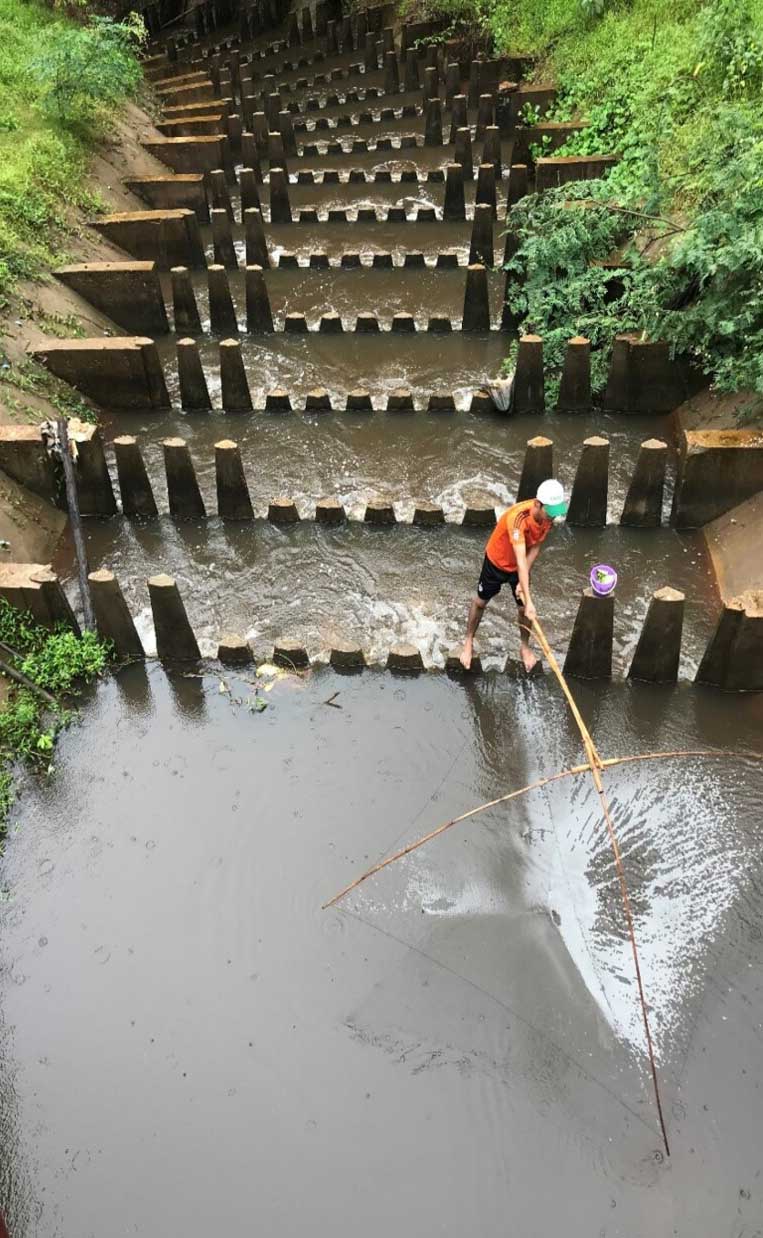Inland Fisheries Research Group
Sustaining Inland Fisheries: Ensuring Access to Vital Food Sources

Inland fisheries serve as a crucial source of food and livelihoods for communities worldwide. In parts of Southeast Asia, fish account for up to 80% of the animal protein consumed by local populations (Hortle 2007) and support the livelihoods of up to 95% of rural households, either directly or indirectly (Hortle and Campbell 2009).
However, this vital food supply depends on fish having access to key habitats for feeding, spawning, and nursery development—essential conditions for their growth and reproduction.
Many rivers are increasingly unable to sustain these fisheries due to human development. Infrastructure such as dams, weirs, and road crossings disrupt natural river connectivity, cutting off fish from critical habitats. Globally, more than 45,000 large dams (over 15 m in height) already fragment river systems (World Commission on Dams 2000), alongside countless smaller irrigation structures and culverts.
These barriers severely limit fish movement, reducing population sizes and, ultimately, the productivity of inland fisheries. Current modeling predicts that if all planned dams in the Mekong River system—home to the world’s most productive inland fishery—are completed, migratory fish biomass could decline by up to 70% (Welcomme et al. 2015; Ziv et al. 2012). Additional irrigation infrastructure and road crossings would only exacerbate this issue.
We are actively addressing these challenges. Our research focuses on developing and testing fish passage technologies—such as specialised fish ladders—that restore connectivity in river systems, allowing fish to access essential habitats and maintain healthy populations.
By safeguarding fish from egg to adult stage, our work ensures the long-term sustainability of river infrastructure projects while securing food supplies for local communities.
Headquartered at Charles Sturt University in New South Wales, Australia, we collaborate with partner investigators across Asia, Europe, the UK, North and South America, and Africa.
We have delivered successful fish passage outcomes in Myanmar, Lao PDR, Thailand, Cambodia, Vietnam, Indonesia, Germany, and Australia.